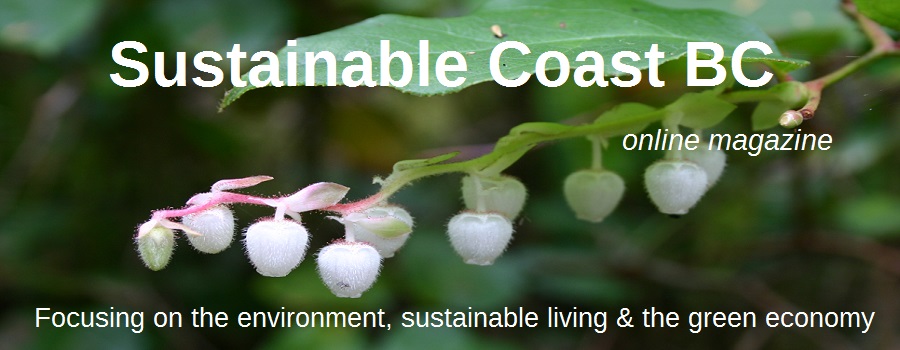- Details
-
Written by Beverly Saunders Beverly Saunders
-
Category: News News
-
Published: 30 March 2010 30 March 2010
UPDATE
Salmon Are Sacred.org reports that support is building for the migration walk. They have also produced a new video
“I am humbled by the response from people around the world,” said Alexandra Morton who will be honoured at the 2010 WINGS ‘Women of Discovery Awards’ in New York later this week in an event hosted by Uma Thurman. “Governments forced this industry into places many, many people tried to protect. I think this is why this has become a movement with individuals forming their own migrations, like the salmon. People know wild salmon are a life-support system for First Nations, our forests, bears, eagles, orcas, communities and our local economies. As we stand up for our fish, juvenile wild salmon are running the gauntlet past salmon farms once again and be will burdened with disease and sea lice. Norwegian salmon farms have become the gatekeepers. Government said salmon farms are good for us, but look again. The way this industry has been run is a huge mistake and while government did not protect wild salmon people, they should offer a safety net for salmon farm families by moving salmon farming onto land, allowing a Canadian industry to develop and allow wild salmon to be restored. The tragedy of the commons is very common, but we do not have to be this tragedy”.
The organization Salmon Are Sacred begins a walk on Earth Day, April 22 to support wild salmon. Biologist Alexandra Morton will start the BC migration in the Ahta River in the heart of the Broughton Archipelago while Quoashinis Lawson starts at the Bedwell River in Clayoquot Sound UNESCO Biosphere Reserve. They will join up en route to Victoria for the final event on May 9, Mother's Day. Other migrations are planned from Gold River, the Cowichan Valley, the Gulf Islands, the Fraser River Valley, Adams River and Washington State.
Morton, who was recently awarded an honorary degree by Simon Fraser University, said:
[blockquote]"The science is done, we know enough to act, but government continues shielding this industry from the laws of Canada. I think it is essential that everyone who understands the importance of wild salmon to our communities and ecology stand up so government can see you. As our wild salmon head out to sea, we will migrate in the opposite direction to the B.C. Parliament Buildings to demand safe passage by the removal of open net cage salmon farms to create. Save wild salmon, remove the farms."[/blockquote]
The organization is challenging businesses and communities that depend on wild salmon to join in the migration and support the campaign. Morton plans to speak to interested groups and collect signatures on a petition asking the federal government to use the Fisheries Act to protect wild fish. Currently the fish farms are not subject to Canada's fishing regulations.
Morton presents a solution that she says would benefit the BC economy and ecology:
- Apply the Canadian Fisheries Act to fish farms as it is applied to all other marine users. If the fish farmers (92% Norwegian-owned) cannot meet this standard they should leave.
- The Provincial government could support the Canadian fish farmers who would like to reinvent the industry in tanks on land in towns starved for employment.
- Restore wild salmon using local management and the fish’s own biology.
Public events are planned in Sointula (22nd April), Port McNeill (23rd April), Nimpkish Lake (23rd April), Tofino (24th April), Quadra Island (28th April), Campbell River/Courtenay (29th April), Big Qualicum River/Parksville (30th April), Port Alberni (1st May), Nanaimo (2nd May), Saltspring Island (3rd/4th May), Duncan (5th May), Bamberton (6th May), Sidney (7th May) and Victoria (8th May).
According to the Salmon Are Sacred organization, support is flooding in from around the world with people in Norway, Scotland, Ireland, United States and Canada pledging to stand up for wild salmon with migrations of their own and offers of solidarity.
The Cohen Commission is investigating the collapse of the sockeye salmon fishery in BC after barely one million salmon returned of an expected 10 million announced by DFOlast year. A first report is expected sometime in August. Headed by Bruce Cohen, the inquiry is hearing from environmental groups, Aboriginals, fishermen, members of the public and salmon farmers. The DFO has predicted that most salmon runs are in trouble siting only 29 out of 88 stock groups being strong.
Further information may be viewed by going to: http://www.salmonaresacred.org. where there is also an online petition.
